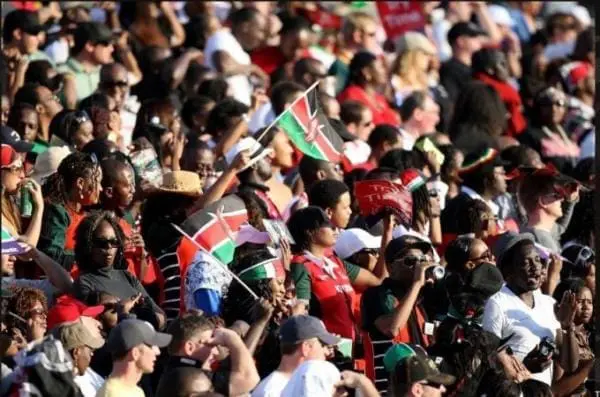Kenyans in Diaspora: To Return or Not to Return – The Big Question
 If there are two things that every patriotic, diasporan Kenyan must master, they are strategy and the ability to discern the times. The patriotic Kenyan leaves home with a mission – to go “out there”, glean knowledge and skills, and return home to build his or her country. But time and chance happen, I suppose, and the vicissitudes of life and conveniences of the west cause many to prolong their sojourns or change their minds.
If there are two things that every patriotic, diasporan Kenyan must master, they are strategy and the ability to discern the times. The patriotic Kenyan leaves home with a mission – to go “out there”, glean knowledge and skills, and return home to build his or her country. But time and chance happen, I suppose, and the vicissitudes of life and conveniences of the west cause many to prolong their sojourns or change their minds.
It is easy to get comfortable, but the person who is determined to return home must never stop calculating. Stick around for too long in a country like the US, and you risk being sucked into the vicious cycle that comes with living in a debt-financed system, clocking in and out from 9 to 5, and looking back to realize that it has been thirty years and you have nothing to show for it all. Drag your feet, and you risk losing the opportunity to forge rich relationships and maximize on investment opportunities. You might even risk being overqualified for your field of expertise.
Miscalculate and move home too fast, and you risk disillusionment and depression, because you have not taken the time to wean yourself away from the efficiencies and organization of a developed nation or to ease your way into the tidy chaos of a country such as ours. Forget the basics, such as finding a job first, and you risk starving yourself and your dependants.
Like many of my peers, I am at that point where I need to make a decision. Perhaps I have been listening to too many friends, but after watching the political and economic scene over the past few months, I have begun to ask myself what there is to move back to. I always believed that we should “ask what we can do for our country.” Now, I wonder if it is so evil to ask what our country can do for us.
There are many battles each person has to fight before making the big move back home. There is the identity crisis, which includes simple things like being asked at home why you speak like a mzungu, yet being asked out here where you are from because you have a thick accent. You must learn to craft a new identity that fits into both worlds.
There is the resentment that Kenyans at home feel for those in the diaspora, because for a long time (according to the stereotype), the latter despised and patronized the former. It is said that adjusting and finding employment after a long time away is particularly difficult because as soon as people hear “I lived in London for ten years,” they become defensive.
There is the feeling of being unwanted and unrecognized. Many countries take good care of their citizens who live abroad. They will pull all stops to ensure that their expatriates and tourists are safe wherever they are. Our embassies, on the other hand, are a nightmare. I must say there have been improvements here and there. I have heard wonderful things about the Consulate in New York, and our ambassador acted swiftly in Japan after the earthquake in 2011. But it is a well-known fact that the Kenyan embassy in Washington, D.C. is one place you do not call before you have taken the time to ensure you are in the type of calm mode that nobody can upset. Dare to speak to the telephone operators in Kiswahili and they act like it is a bribe or you are kissing up to them. Passports take an unacceptable six weeks to renew – no guarantees during the holiday season. Compare that to 14 days for a Ugandan passport, for instance.
There is also the subtle disdain with which Kenyan citizens are met with at our own government offices and transit points. A US passport or form of identification commands respect not just worldwide, but more importantly also on American soil. Kenyan systems treat their own with mistrust and give foreigners free range.
These are just some of the things we have to consider. And then there is the very basic question: “What will I eat?” There is that sneaky suspicion that perhaps we might make a bigger impact if we stayed put. The diaspora does play a huge role in the growth of our economy. With the cost of living as high as it is, we need to be able to lend a hand, and it makes no sense for people to leave steady jobs – menial or otherwise – to go back home to joblessness and become an even greater burden on their families. After the last elections, and with the uncertainty about the coming elections, many of my friends abroad are opting to postpone their relocation. There is the unspoken fear caused by the inability of many to trust our politicians. “I’m not an M.P,” one friend said to me two weeks ago. “My parents have no bodyguards, and my family cannot flee at a moment’s notice. They need to have a place to go to, just in case things hit the fan
Story by Paula Odhiambo.
Source:ukentv.com/







